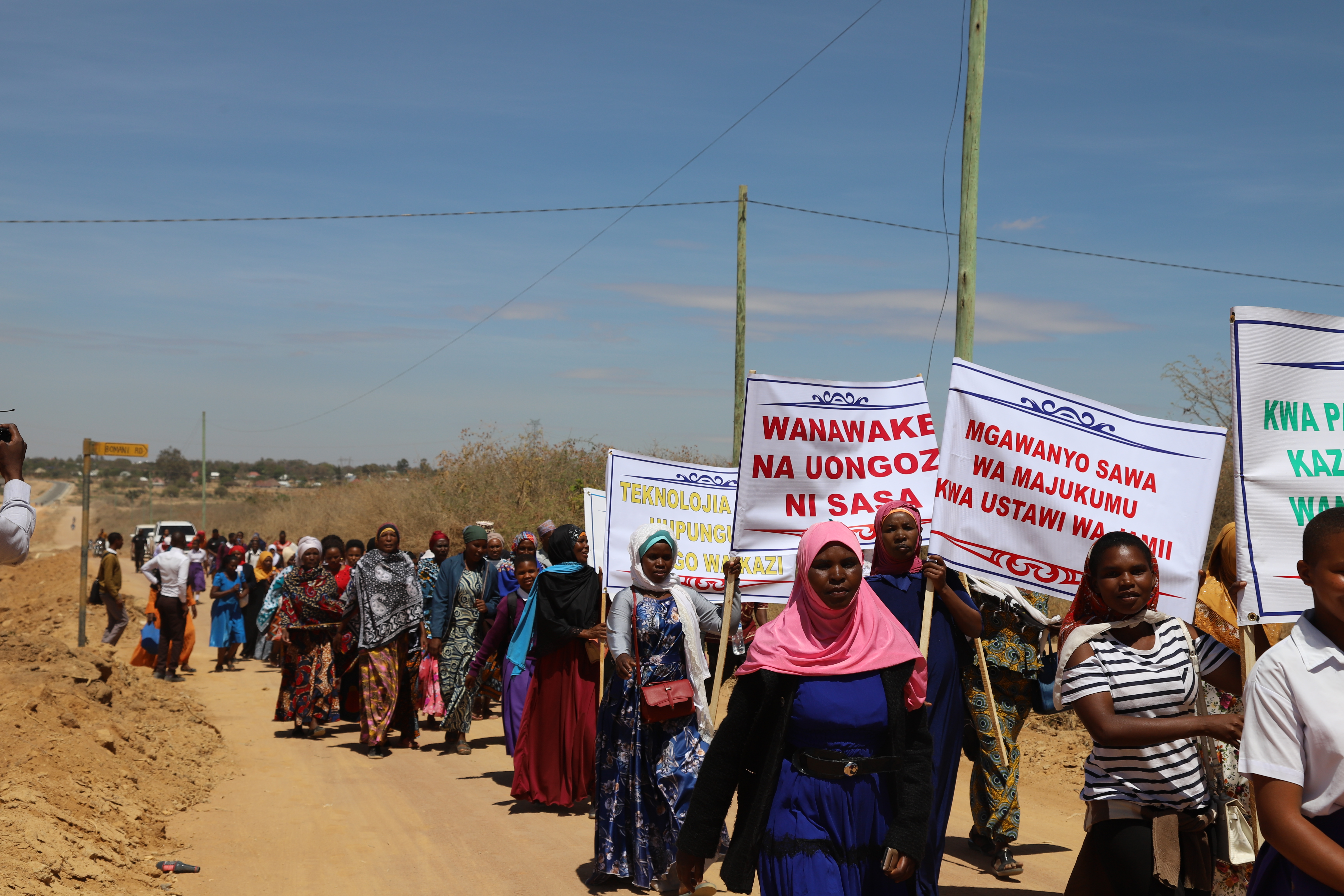Op-ed: Addressing Women’s Unpaid Care Work - A Catalyst for Tanzania’s Progress
Theresa Zitting, Kyle Nunas and Ms. Hodan Addou
Date:

In a landmark resolution passed in July 2023, the United Nations General Assembly declared the 29th of October as the International Day of Care and Support, calling upon Member States, the UN system, civil society, the private sector and the public to observe the day every year.
Everyone needs care and support at some stage, if not throughout their life to live with dignity and participate in society. Yet, throughout history women have disproportionately borne the brunt of care work—be it as young girls, adolescents, adults, older women, and women with disabilities. This work often goes unnoticed and hampers their equitable participation in society, limiting their access to education, paid employment, and participation in public and political life.
The International Day of Care and Support underscores the importance of recognizing and valuing unpaid care work, and emphasizes the pressing need to address existing inequalities.
According to the Tanzania Social Institutions and Gender Index report, on average women in the country spend 4.4 hours per day on unpaid care and domestic work, compared to 1.4 hours daily for men. In addition to their disproportionate share of unpaid care and domestic work, women face a double burden as they also undertake a large amount of paid work, resulting in a larger total workload of 9.4 vs 7.4 hours for men.
This kind of work forms the solid foundation on which official industries, services, and economies sit, and help societies to function. However, as women take on this bulk of work, it also means that they have to contend with the penalty of not being able to have a decent job with a decent wage or engage in other income-earning opportunities.
Addressing unpaid care work is therefore central to the achievement of gender equality. This requires greater investments in care policies, services, jobs and infrastructure to recognize, reduce and redistribute unpaid care and domestic work. Some proven solutions include establishing essential infrastructure, such as clean water and sanitation, and setting up affordable care facilities for children and the elderly. The private sector also plays a key role in making available affordable technology and tools to support women to save time from doing household chores. Transforming societal perspectives on social norms and gender roles is key, including through grassroots initiatives championing shared household responsibilities. Additionally, there is a need for more gender-transformative workplace policies across sectors, which integrate flexible schedules, accessible childcare, and equitable parental leave to foster a balanced approach to caregiving.
Fortunately, these are areas in which Tanzania has made significant progress. At the global Generation Equality Forum held in 2021, the Government of Tanzania committed to implement several actions to improve women’s economic justice and rights, including by alleviating the burden of care for women. This included commitments to increase investments in gender-responsive public and private quality care services, law and policy reforms, the creation of decent care jobs to recognize, reduce and redistribute unpaid care work, and to reward and represent care workers while guaranteeing their labour rights by 2026.
Tanzania is also a member of the Global Alliance for Care, which emanated from the Generation Equality Forum. Through these commitments, the Government has been at the forefront of the global discussions on care, and has already marked significant milestones from enhancing childcare provisions to broadening women's access to cleaner cooking energy solutions.
The Governments of Canada, Finland, and UN Women are committed to supporting the Government’s efforts to achieve its Generation Equality commitments. Through a 4-year partnership, Finland and UN Women are working with Local Government Authorities in 6 regions and 18 districts of Tanzania with the aim of promoting women’s leadership and economic rights at grassroots levels, including by supporting the government to pilot care initiatives. A current UN Women programme funded by Canada aims to support transformative approaches to recognize, reduce and redistribute unpaid care work.
Together with partners, and drawing on best practices from around the world, our collective ambition is to integrate care and support as both a right and a public good into national policy frameworks, underscoring its significance for sustainable development and economic growth.
The International Day of Care and Support presents us with an opportunity to shine the light on the significance of care work and those who shoulder it, to enhance commitment, and take action to promote the rights of caregivers, care workers, and those receiving care and support.
As we continue to commemorate the day this week, let’s accept the challenge the day brings to accelerate efforts - for the advancement of sustainable development, and to positively impact the lives of women and girls nationwide.
Theresa Zitting is the Ambassador of Finland to Tanzania, Kyle Nunas is the Canada High Commissioner to Tanzania, and Ms. Hodan Addou is the UN Women Tanzania Country Representative